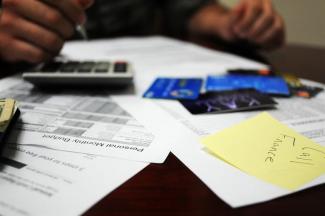
The student loan crisis predates the coronavirus (COVID-19) pandemic, but could get much worse because of it. Jobless claims have reached a record high at over 30 million, and many student loan borrowers, especially those who have been forced to halt payments from lack of income, are worried about their student debt.
In New York, the epicenter of the crisis, Representative Carolyn Maloney (D-NY) recently proposed partial or total forgiveness for frontline healthcare workers who typically carry the greatest average debt loads. There is some relief for other borrowers, however, as well.
Thanks to the recently-passed CARES Act, borrowers who are already on income-driven repayment plans such as Pay As You Earn or Income-Based Repayment, or the public service loan forgiveness (PSLF) plan, can count on several temporary relief measures.
“Under the CARES Act - the $2.2 trillion financial stimulus package - [all] federal student loan payment [obligations] are paused and interest rates have been set to 0%,” until September 30, 2020, Forbes reports. That means many borrowers will not have to make payments, and won’t accrue interest, until August.
Other relief offered through CARES includes counting suspended payments during this period toward loan forgiveness for people on PSLF plans. Also, anyone who does make a payment during the relief window will have it count exclusively towards the principal balance, not interest.
Also important to note is that according to MyFedLoan, a servicer of federal loans, any payments that have processed between March 13, 2020, and Sept. 30, 2020, can be refunded at borrower’s request without penalty.
But the relief doesn’t affect every type of student loan in repayment - only federal loans, and even then some restrictions apply. For example, the New York Times reports that education secretary Betsy DeVos insisted that “congressional relief for students dislocated by campus closures cannot go to undocumented immigrants, even those under federal protection.”
As for private loan obligations, many servicers are following suit. Sallie Mae is currently offering three month payment suspensions called “COVID-19 forbearance,” interest rate reduction programs, and other loan modification programs if a more long-term solution is needed.
Other private and public loan holders including Navient, Nelnet, Discover Student Loans are each enacting their own versions of payment or interest delays, though details vary. All lenders are offering income recertification that may help lower monthly payments.
With any student debt management plan, falling behind on repayment could spell trouble down the line if default leads to a poor credit profile. Having a documented on-time payment history improves one’s credit immensely.
A healthy credit profile aids consumers in renting an apartment, purchasing property, establishing a line of business credit, and even securing future employment - all essential components to wealth creation.
It’s important to note that Black women shoulder the greatest amount of educational debt, and for longer periods. How both public and private loan creditors address the needs of all borrowers will have a direct impact on this demographic for decades to come.